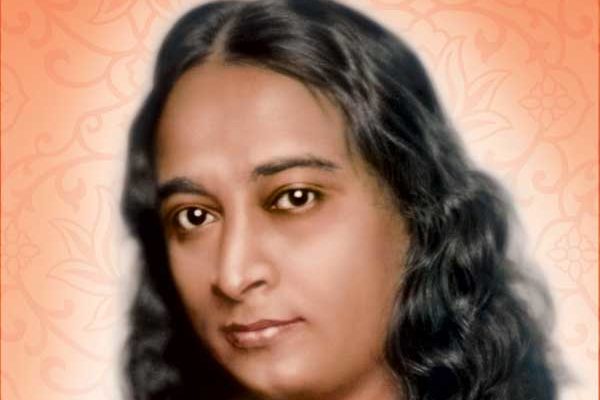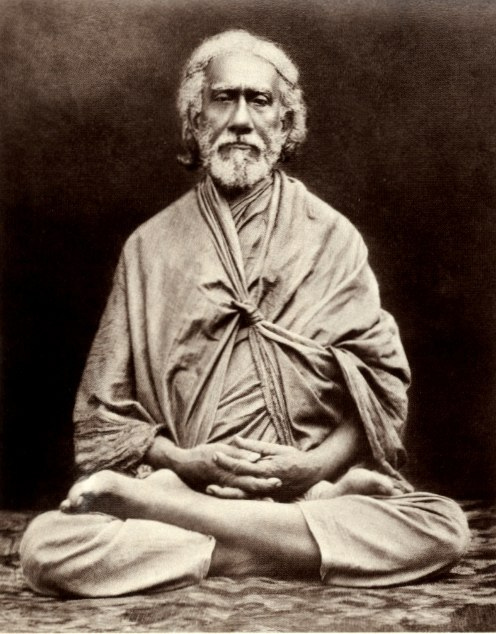Autobiography of a Yogi (book review)
Autobiography of a Yogi by Paramahansa Yogananda was an interesting read. In it, Yogananda writes about his life and spiritual journey, starting from spiritual experience from early childhood, and his wonderings in search of a guru. Eventually he finds a guru that he believes was destined to be his teacher, Sri Yukteswar Giri. From then on he spends a lot of time in his ashram, learning from him, while at the same time period attending college. After he learned fair amount, he decides to spread the teachings in USA and to open his own school in India.
There are many insightful things in it and I’m glad I’ve read it. It increased my understanding of karma, it gave me some insights into some aspects of non-physical realms, astrology and many other things. At one point there is narration of several stories about Babaji – famous yogi who apparently lives with the same physical body for millions of years. In one of them he manifested real material palace in the midst of Himalayan mountain in order to help his disciple with something. When that was completed, he made it vanish. He explained how that was done, he compares it to this physical world and what would it take for the palace to remain longer, just as this physical world remains. There are many more extraordinary stories, many entailing developed yogis who exhibit amazing powers.
The main teaching that Yogananda and his guru promote is called Kriya Yoga. Yogananda dedicates a chapter to it, explaining what it is, but he doesn’t give concrete how-to technique, saying that it’s better that people acquire it from their own Kriya teacher. I haven’t tried this yoga, though it’s basically based on breathing, and as I heard there are several variations of it. Yogananda says that its daily application would speed up human evolution tremendously, stating that just by natural course it takes about a million years of evolution of human brain to reach God consciousness, while with 8 hour daily practice of Kriya it takes several decades. I’m personally skeptical about it since he ignores the law of devolution and how it affects human development, and he also ignores the aspect of self-knowledge.
Nevertheless, I would recommend this book because, as I said in the beginning, it has many useful insights about various things and can generally increase people’s understanding or deepen their thought. Here are some quotes from the book:
“Man can understand no eternal verity until he has freed himself from pretensions. The human mind, bared to a centuried slime, is teeming with the repulsive life of countless world-delusions. Struggles of the battlefield pale into insignificance here, when man first contends with inner enemies! No mortal foes these, to be overcome by a harrowing array of might! Omnipresent, unresting, pursuing man even in sleep, subtly equipped with miasmic weapons, these soldiers of ignorant lusts seek to slay us all. Thoughtless is the man who buries his ideals, surrendering to the common fate.” – (said by an unknown person he met)
“I have left a few paltry rupees, a few petty pleasures, for a cosmic empire of endless bliss. How then have I denied myself anything? I know the joy of sharing the treasure. Is that a sacrifice? The shortsighted worldly folk are verily the real renunciants! They relinquish an unparalleled divine possession for a poor handful of earthly toys!” – Bhaduri Mahasaya
“Forget the past. The vanished lives of all men are dark with many shames. Human conduct is ever unreliable until man is anchored in the Divine. Everything in future will improve if you are making a spiritual effort now.” – Yukteswar Giri
“Do not fix your spiritual ideal on small mountains, but hitch it to the star of unqualified divine attainment. If you work hard you will get there.” – Ram Gopal Muzumdar
“Wrath springs only from thwarted desires. I do not expect anything from others, so their actions cannot be in opposition to wishes of mine.” Yukteswar Gir
“Mukunda, why don’t you get an astrological armlet?” “Should I, Master? I don’t believe in astrology.” “It is not a question of belief; the scientific attitude one should take on any subject is whether it is true. The law of gravitation worked as efficiently before Newton as after him. The cosmos would be fairly chaotic if its laws could not operate without the sanction of human belief.” – Yukteswar Giri
“Death, and indeed sleep, “the little death”, are a mortal necessity, freeing the unenlightened human being temporarily from sense trammels. As man’s essential nature is Spirit, he receives in sleep and in death certain revivifying reminders of his incorporeity. “ – Yogananda Paramahansa
“Those who cling to the cosmic illusion must accept its essential law of polarity: flow and ebb, rise and fall, day and night, pleasure and pain, good and evil, birth and death. This cyclic pattern assumes a certain anguishing monotony, after man has gone through a few thousand human births; he begins to cast a hopeful eye beyond the compulsions of maya.” – Yogananda
“Creation is light and shadow both, else no picture is possible. The good and evil of maya must ever alternate in supremacy. If joy were ceaseless here in this world, would man ever seek another? Without suffering he scarcely cares to recall that he has forsaken his eternal home. Pain is a prod to remembrance. The way of escape is through wisdom! The tragedy of death is unreal; those who shudder at it are like an ignorant actor who dies of fright on the stage when nothing more is fired at him than a blank cartridge. My sons are the children of light; they will not sleep forever in delusion.” – (this message came to Yogananda by what he calls “Divine Voice”)
“The reflection, the verisimilitude, of life that shines in the fleshly cells from the soul source is the only cause of man’s attachment to his body; obviously he would not pay solicitous homage to a clod of clay. A human being falsely identifies himself with his physical form because the life currents from the soul are breath-conveyed into the flesh with such intense power that man mistakes the effect for a cause, and idolatrously imagines the body to have life of its own.” – Paramahansa Yogananda



Leave a Reply